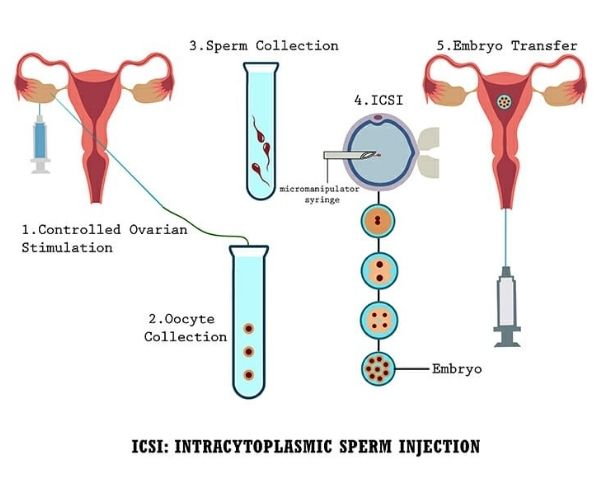Intra Cytoplasmic Sperm injection(ICSI)

Before a man’s sperm can fertilize a woman’s egg, the head of the sperm must attach to the outside of the egg. Once attached, the sperm pushes through the outer layer to the inside of the egg (cytoplasm), where fertilization takes place.
Sometimes the sperm cannot penetrate the outer layer, for a variety of reasons. The egg’s outer layer may be thick or hard to penetrate or the sperm may be unable to swim. In these cases, a procedure called intracytoplasmic sperm injection (ICSI) can be done along with in vitro fertilization (IVF) to help fertilize the egg. During ICSI, a single sperm is injected directly into the cytoplasm the egg.
ICSI can help couples who have struggled with infertility, especially when infertility issues are male-related. ICSI during IVF gives you an enhanced fertilization rate, which can increase the number of fertilized eggs available for transfer or freezing.
ICSI helps to overcome fertility problems, such as:
- The male partner produces too few sperm to do artificial insemination (intrauterine insemination [IUI]) or IVF.
- The sperm may not move in a normal fashion.
- The sperm may have trouble attaching to the egg.
- A blockage in the male reproductive tract may keep sperm from getting out.
- Eggs have not fertilized by traditional IVF, regardless of the condition of the sperm.
- In vitro matured eggs are being used.
- Previously frozen eggs are being used.
